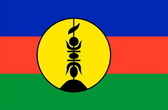
Call 0330 880 3600 Calls may be monitored or recorded. Opening Times.
- TRAVEL INSURANCE
- COVID-19 COVER
- More Options
- Help & Advice
- Existing Customers

Call 0330 880 3600 Calls may be monitored or recorded. Opening Times.

Need help?
UK Customer Services0330 880 3600*
Open Monday to Friday 9:00am to 6pm, Saturday 8:30am to 4pm and closed Sundays.
*Calls are recorded for training and quality purposes.

Official name: New Caledonia (French overseas territory)
Capital city: Nouméa
Languages spoken: French, 30+ Kanak languages
Population: Around 270,000
Currency: CFP franc (XPF)
Time zone: GMT+11
Driving side: Right
Climate: Subtropical, with hot, humid summers and cooler, drier winters
New Caledonia is a French overseas territory in the South Pacific, made up of the main island of Grande Terre, the Loyalty Islands, and smaller islets. Its blend of French and Melanesian culture is reflected in food, art, and everyday life. The capital, Nouméa, is modern and cosmopolitan, while the outer islands are known for stunning lagoons and traditional Kanak culture.
The territory lies east of Australia and north of New Zealand, with one of the world’s largest lagoons and coral reefs, listed as a UNESCO World Heritage Site. Grande Terre is mountainous, with fertile valleys and lush rainforest, while the surrounding islands feature white-sand beaches and turquoise waters.
La Tontouta International Airport connects New Caledonia to Australia, New Zealand, Japan, and France. Domestic flights and ferries link the islands, while roads are generally good on Grande Terre. Public transport is limited, so hiring a car is a common way to explore.
As part of France, entry requirements follow French rules. UK citizens can visit visa-free for up to 90 days in a 180-day period. For longer stays, a French visa or residence permit is required. The nearest British consular support is provided through the British Embassy in Paris, though local authorities offer assistance.
The official currency is the CFP franc (XPF), pegged to the euro. Credit and debit cards are widely accepted in Nouméa, but cash is important in rural areas and on smaller islands. Prices are generally high, reflecting import costs and the territory’s reliance on goods from France.
Healthcare facilities in Nouméa are good, but more limited on smaller islands. Emergency care is available, and French is the main language used by medical staff. Travellers should ensure they have comprehensive travel insurance, including cover for medical evacuation if needed. Tap water is generally safe in Nouméa, though bottled water is recommended in rural areas.